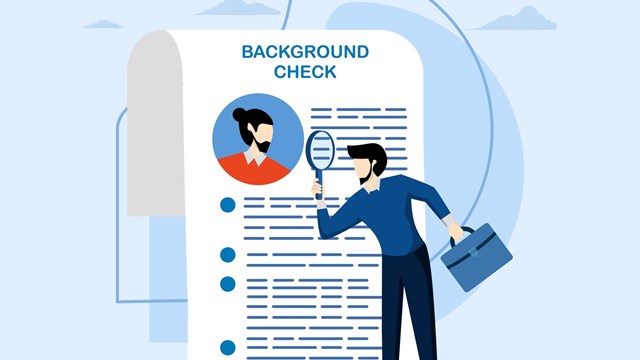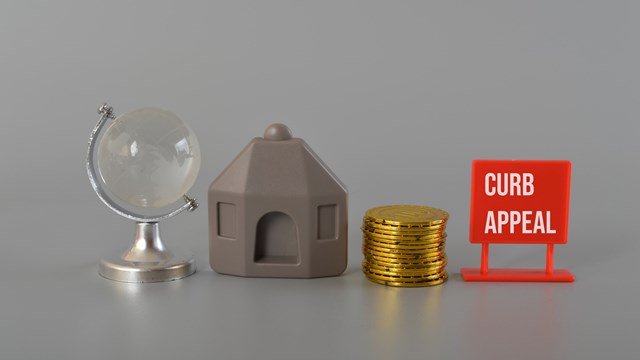The following article is an excerpt from The Ultimate Guide to Buying and Selling Co-ops and Condos in New York City, a book I wrote that was designed to be the ultimate guide: a good overview of what you need to know about buying and selling co-ops and condos in New York City; a reference guide to walk you through the specifics of each stage of the process; a guide to pertinent terminology; and an introduction to the basics of real estate investing.
A substantial part of my professional career has been dedicated to training. The original program I developed arose from my discussions from new salespeople and consisted of a series of audio tapes. But the real estate market is never static, and I found myself having to make more tapes as new issues appeared. The current Bellmarc training programs take two months of intensive work to complete. This book represents the next logical step. Just as I teach salespeople, there are many things I can do to help a buyer, seller, or interested third party better understand the world of cooperatives and condominiums in New York.
What follows is Chapter One of The Ultimate Guide, a description of the purchasing process. It endeavors to provide the perfect backdrop for moving seamlessly and close to effortlessly into the co-op or condo of your choice... Good Luck!
Step 1: Submitting the Bid
As far as the seller is concerned, the sales price, in the vast majority of cases, is "all cash." The seller will receive a check for the full amount on the day of the closing. About 75 percent of the time, the buyer will need a loan (mortgage) from a bank in order to have enough money to complete the transaction. If you need a mortgage, your offer is conditional upon your loan being approved by a lending institution. Your purchase offer is considered an offer subject to financing.
It is often possible to get a mortgage pre-approved by a bank before actually finding a specific property. Always make sure the pre-approval is in writing and that it is not subject to any condition you can’t realistically meet. The advantage of a pre-approved loan is that it may no longer be necessary to submit an offer subject to any conditions. An unconditional offer is one in which financing is guaranteed by the buyer, or where only equity capital will be used to complete the purchase.
Being able to make an unconditional offer puts the buyer in an advantageous negotiating position since the buyer can offer greater certainty for the successful conclusion of the transaction. Sellers are often willing to take a lower price in exchange for this certainty. However, even if an offer is unconditional, the co-op contract still makes the transaction contingent on the cooperative board approving the apartment purchase. In a condominium, a "right of first refusal" procedure may be required.
When something is physically wrong with the apartment–such as a broken fixture or damaged ceiling–a buyer might submit an offer subject to correction. That is, the offer is only good in the event that the seller cures the offensive condition.
Buyers should consider what items they would like to have included in the transaction. Normally, it is understood by everyone that kitchen cabinets and appliances are included in the sale. But misunderstandings frequently occur regarding almost every other item in the apartment. Air conditioners, light fixtures, blinds and drapes, furnishings, and built-ins should be expressly stated as included or not included with any offer.
A verbal offer creates no legal obligation for either the buyer or the seller. Therefore, if you submit an offer, you are free to change your mind until you sign a contract. Some buyers are hesitant to make an offer significantly lower than the seller’s asking price. Nothing is lost by submitting a low offer and there may be much to be gained. A good real estate broker will tell you that, in most instances, as long as there is reasonable justification for the offer, it will be seriously considered.
Step 2: The Contract Procedure
Once the basic terms of the deal have been agreed to, you should immediately notify your attorney. It is advisable to choose an attorney who has significant experience with real estate transactions in New York City. Getting a few recommendations from the real estate broker or a mortgage broker may be helpful.
The contract is usually prepared by the seller’s attorney and sent to the buyer’s attorney, who reviews it along with the building’s prospectus, the cooperative corporation’s or condominium association’s last financial report, and other pertinent documents. The attorney’s purpose is to insure that all material issues are defined and properly addressed with the client, the buyer. If the contract is acceptable, the buyer signs it and submits a check for ten percent of the contract price as a deposit. Normally, multiple copies of the contract are signed, so that both the buyer and the seller have original documents. Once the contracts are signed by the buyer, they are sent to the seller’s attorney along with the deposit check.
The seller’s attorney places the deposit funds into an escrow account (a special bank account held in trust for the parties to the transaction), and arranges for the seller’s signature. The seller’s attorney will then send an original set of fully-executed contracts to the buyer’s attorney. A legally binding contract is now in full force, since it has been signed by both parties and delivered to each.
Step 3: Getting a Mortgage
A mortgage is a loan that uses real estate as security. If you don’t pay the loan according to the terms of your agreement, the bank can take your real estate as an alternative form of repaying the debt (foreclosure). Obviously, it is essential that you not borrow more than you can afford.
In the case of a cooperative apartment, you are not buying real estate. You are buying stock in a corporation that owns the building and receiving a proprietary lease entitling you to reside in a specific apartment. Since you own shares in a co-op, not real estate, your loan is not technically considered a mortgage. Rather, it is a financing loan. Notwithstanding this technicality, the general public, and even brokers, use the term "mortgage" to include a loan for a co-op apartment. There are various types of mortgages, or financing loans, that are available. They fall into two predominant categories: variable rate loans and fixed rate loans.
With a variable rate loan, the rate of interest changes within a short period of time, usually one, two, or three years. Recently, there have even been loans offered which vary periodically either up or down, based on an index, such as the United States Treasury Bill Rate. Usually, there is a "cap" on this interest rate variation–generally two percentage points in any given adjustment period.
The advantage of a variable rate loan is that your interest rate at inception is normally one or two percent less than the rate on a fixed rate loan. Since your payment also is initially less, the bank will permit you to borrow more money than with a fixed rate mortgage. The disadvantage is that you are subject to greater economic risk in the future. Frequently, when interest rates rise the economy slows. Therefore, you may wind up getting an increase in your monthly mortgage payment at the same time your finances are tightening.
A fixed rate loan provides for an unvarying monthly payment for the term of the loan, usually 15 or 30 years. This is valuable to people who are looking to maintain a predictable monthly budget since this type of loan eliminates the risk of being subject to a change in the payment. However, the reverse is also true, there is no opportunity to have a lower payment if interest rates decline.
As a general rule, a variable rate loan appears preferable to buyers who anticipate five years or less of ownership and a fixed rate loan appears preferable to those who have a longer time horizon, or when the interest rate offered is under 18 percent.
It is useful to seek the advice of a reputable mortgage broker for assistance in getting a loan. A mortgage broker can present you with an array of programs offered by many different banks on a competitive basis. This improves the likelihood that you will find the best rate and terms in the marketplace. Many buyers have found that going directly to their bank, even if they have an excellent banking relationship, affords them no better terms and conditions than those offered through a mortgage broker. In addition, a mortgage broker will assist you in preparing all the necessary documents and explain any aspects of the process that are unclear. The best part about this service is that it is free to the buyer. The mortgage broker’s commission is paid by the bank lending the funds.
In obtaining a mortgage, the buyer will incur certain up front costs including an application fee, an appraisal fee (to verify the value of the property), the bank’s legal fees (for preparing and processing loan documents), and "points" (additional profit to the bank).
Step 4: The Board Approval Process
A lot has been made in the press about a ritual many New York City home buyers endure when purchasing an apartment in a cooperative building–the co-op board review process. In reality, the board review is rarely as offensive as the news reports have made it out to be. In most instances, it is more about getting to know you, and welcoming you into the co-op community, than about making your life miserable. In our overall experience, board rejections are somewhat rare. However, there are some material issues you should be aware of when applying for approval.
Boards will reject applicants primarily for the following reasons:
• You do not meet the minimum cash equity requirement set forth for the building, or your financial information does not show evidence of income adequate to support your purchase.
• You have a pet and there is a no-pet rule.
• You have been dishonest or deceptive in your application material.
• You present yourself at the interviewe in an abusive, suspicious, or offensive manner rather than acting open and friendly.
The following are normally required documents for a Board Package:
• An application with basic information about yourself, including your financial condition.
• One or two years’ tax returns.
• Two to four letters of personal reference.
• Two to four reference letters from people you work with.
• One letter from a former landlord (if applicable), affirming you were a good tenant.
• One letter from a bank, affirming your balances and how long you have had an account with the bank.
• One letter fron your employer, affirming you position and length of employment and your salary, including bonuses (if applicable).
• Your contract of sale.
• Your mortgage commitment letter.
• Various documentation supporting your represented financial condition.
Customarily, the buyer’s real estate broker will assist in preparing the board packet. The broker should insure that all the necessary material is gathered and complete, and should submit the completed documentation to the managing agent. Usually, the board will not schedule an interview until after the board packet, including all supporting documentation, has been deemed complete.
Step 5: Closing the Transaction
After a buyer has been approved for a mortgage–and, in the case of a co-op, has received approval from the board–the closing will take place. The following people will normally be present: you and your attorney; the seller and his or her attorney; a representative for the bank providing you with a loan; a bank representative for the loan being paid off by the seller; the managing agent representing the building; and the real estate broker. If the purchase is a condominium, there will also be a representative from a title insurance company who will verify and insure that a clear title is being transferred by the seller.
During the closing, you will sign the documents required by the bank to issue your loan. The bank will give the loan proceeds to your attorney on your behalf, and your attorney will then give them to the seller’s attorney. In addition, you will be requested to provide a certified check, made payable to the seller, for the difference between the loan proceeds, the initial ten percent deposit, and the full purchase price. You will also be asked to make a payment for that portion of building maintenance (or common charge in the case of a condominium) allocated for the remainder of the month. In the case of a cooperative, the stock and lease associated with the apartment will be given to the bank to hold as its collateral. In a last act, you will be handed the keys to your apartment. Congratulations!
Mr. Binder is co-founder and co-owner of The Bellmarc Companies, one of New York City’s largest residential real estate brokerage firms.









3 Comments
Leave a Comment